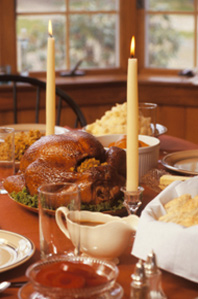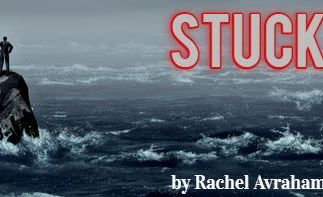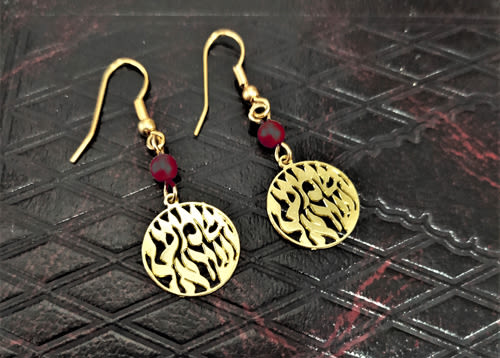
A Double Life
I ate kosher turkey on Thanksgiving and watched the July 4th fireworks with a kosher Smirnoff. However, this double-life never worked quite right…

I always said I would never make Aliyah.
Yet, this past summer I did just that on a rowdy Nefesh B’Nefesh charter flight filled to the brim with new olim and staff, more luggage than you can imagine, 7 dogs and 1 cat. There are no words to describe the energy of that flight – the excitement, fear, and sheer exhaustion. We were the people that had actually made it – the seemingly endless nights of packing, dealing with paperwork and visas, selling most of what we owned and trying to make living arrangements in a different culture, with a different language, on the other end of the world.
Many people ask me why I made Aliyah, and as it should be the answer is quite complicated. But at the root of all of it, there was one nagging realization that kept pulling at my heart and I simply could not, and did not want, to ignore it anymore.
At some point over the last year, I finally came to terms with the fact that I was living a double life.
I am a Baalat Teshuva of almost nine years, Baruch Hashem. I keep the laws of tzniut (modesty), I keep Shabbat and kashrut, etc. Even while working full time, I learned in classes and on my own time via CDs and books on a regular basis. If you saw me walking down the street, you would call me an Orthodox Jew.
 But there was a part of me that wanted to stay “normal” in American terms – perhaps “comfortable” is actually a better word. I worked in corporate America at a high-level desk job that paid very well, just like my executive mother at my age. I lived at a similar standard to what I grew up with. I ate the same food, just kosher. I had the same routine as before, with Shabbat. I ate kosher turkey on Thanksgiving and watched the July 4th fireworks with a kosher Smirnoff. I wore modest business suits to work with a sheitl. You get the picture.
But there was a part of me that wanted to stay “normal” in American terms – perhaps “comfortable” is actually a better word. I worked in corporate America at a high-level desk job that paid very well, just like my executive mother at my age. I lived at a similar standard to what I grew up with. I ate the same food, just kosher. I had the same routine as before, with Shabbat. I ate kosher turkey on Thanksgiving and watched the July 4th fireworks with a kosher Smirnoff. I wore modest business suits to work with a sheitl. You get the picture.However, this double-life never worked quite right. No matter how hard I tried to fit in at work, it really was more of a battle to minimize how much I stood out. Decisions of “can I get away with a headscarf in this situation instead of a sheitl?” abounded, and usually the answer was no. I tried to convince myself that I wasn’t living a gashmiut (material) life and I used what I owned for mitzvot, there was just so much gashmiut it was hard not to make it primary.
I was essentially trying to live a double-life – Orthodox Jew and American. And while they don’t have to necessarily be exclusive, I realized that I was still very tied to American values, goals and ways of thinking. I wanted to keep my American identity as much as I could within the confines of Torah, an identity rooted in galut (exile) – and identity rooted in non-Jewish customs and values.
One night in particular, I realized that all the comforts of home and all the gashmiut simply was not worth the sacrifices I had to make in my spiritual life to keep them. I tried valiantly to live as a Torah Jew in America and surely I wouldn’t break halachah (Jewish law) for anything, but in the end all and be all I was still spending most of my time and energy being American, and not Jewish. No matter how much Torah I stuck in the cracks, my life was still basically material, and not spiritual. I was literally sick to my stomach when I suddenly saw the primacy gashmiut had in my life. It’s not that gashmiut isn’t fine and nice in certain situations – but I no longer wanted to push aside true spirituality and a deep connection to Hashem for it, and realized how much I was losing doing it in the meantime.
Everyone would love the perfect balance, but granted that most people have to sacrifice one for the other I no longer wanted my ruchniut and my nitzchiut – my spirituality and connection to eternity – to be the one being offered on the altar of living in America. Since Hashem was forcing me to choose between physical and spiritual whether I realized it or not and whether I wanted the choice or not, I decided I had to choose spirituality. Because at the end of the day, you don’t take the beautiful house, corporate job, or kosher Thanksgiving turkey with you to the next world, and you weren’t put in this world for them either.
On that night, I decided to make Aliyah because I wanted to put spirituality where it belonged – first. I can have four walls and a roof anywhere in the world. And yes, the culture and language are different and most of my family does not (yet) live in Israel – not an easy thing. I knew my standard of living would change and I would miss the comforts of the culture that I am used to. But at the end of the day these are all secondary, physical aspects of life. The main thing I am put into this world for – to live a truly spiritual life as a full-fledged Jew in all aspects of my life – I can only do in one place. That place is the land of spirituality and emuna, the Land of Israel.
Now, many people before me also wanted to make this choice, but could not because moving to Israel was virtually, and often literally, impossible. It’s one thing to live a double-life as a Jew in a host country when you have no option to living outside the Land, as was the case for the last couple thousand years. But now, Israel welcomes all Jews who want to come home with open arms, and is the only country in the world that actually pays people to move here!
We are the privileged, blessed generation that actually has the ability to make the choice to move to the Holy Land. At the end of the day, no matter what the sacrifices – and they are real – the rewards are tremendous as I will with Hashem’s help explain in future parts of this series.










11/11/2009
You hit the nail on the head! Thank you for this thoughtful article. I can’t tell you how strongly I identified and related!
11/11/2009
Thank you for this thoughtful article. I can’t tell you how strongly I identified and related!